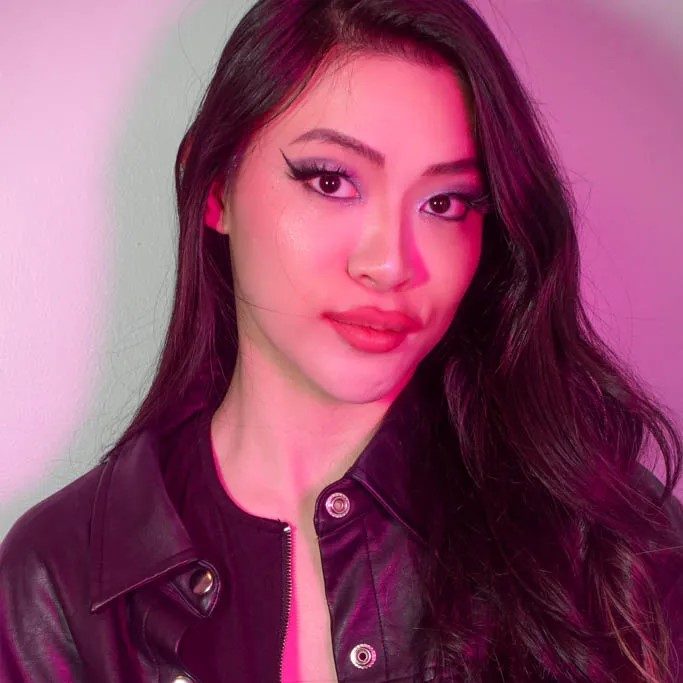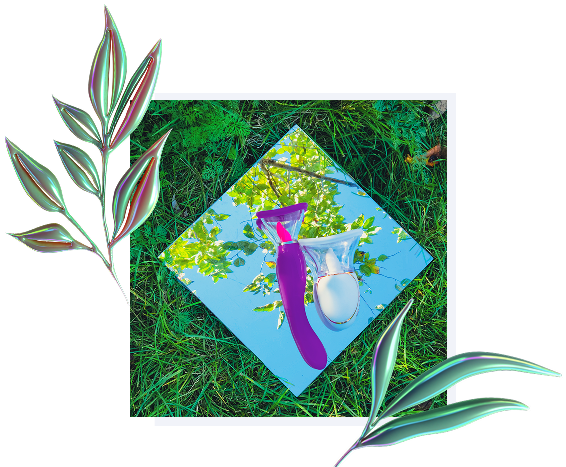Imagine that merely mentioning “Link in bio” on your Instagram story could get your account flagged or deleted.

A photo of a brightly-colored, abstractly shaped dildo gets marked as “adult solicitation.” Or an educational infographic about sexual health gets you shadowbanned — hardly any of your followers see your posts on their feeds anymore.
That’s the reality of social media for plenty of sex-positive businesses, even when their content is PG-13.
It’s like trying to run a business on an active volcano.
Can social media help build a community and audience? Yes, certainly! But be prepared and don’t put all your eggs in one basket.
If you’re a sex-positive content creator or business, here are just a few reasons to take your focus off social media — and maybe build your own website.
1. Plenty of Services Already Aren’t Adult-Friendly
You probably already knew that, but I had to say it again.
Tumblr infamously had its downfall in 2017 with the “pornpocalypse.”
Pinterest doesn’t “allow ads for adult products and services,” except for “family planning and contraception as long as the focus isn’t on improving sexual performance or pleasure."
Their policy particularly epitomizes American sex ed: talk a little about pregnancy and scary STIs, but not at all about pleasure.
Oh, and say goodbye to any long-term plan of promoting your sex-adjacent business via Facebook ads — unless you’re a bigwig with deep pockets like LELO.
That brings me to my next point…
2. You Don’t Always Know When the Content Restrictions Apply to You
It doesn’t exactly help that social media community standards for suggestive content tend to be some combination of the following:
- Vague
- Highly, highly subjective, and up to the sensibility of the moderator you get
- Discriminatory towards LGBTQ+ people
- Inconsistent in their enforcement and lacking in transparency about it
Consider, for example, a photo of a woman sitting in underwear and covering her breasts. Heck, plenty of thin and white-passing influencers can post photos with their ass or tiddies hanging out, as long as nipples are censored.
I've had my Instagram suspended for so much as mentioning the perks of my job (you know, as a toy reviewer) because they deemed it "solicitation." In other words, their AI and some moderators flagged me as a porn star or prostitute soliciting clients. Which, no. I've never done anything like that in my Instagram content.
And a black woman in lingerie could have her photo removed for “sexual activity.” When she posts a follow-up disagreeing with their decision, it could get flagged as “hate speech or symbols.” This situation isn’t hypothetical — it’s happened to writer Cheyenne Monique Davis (@cheymodee) before.
Further food for thought: even in early 2021, iPhone users with the “Limit Adult Websites” setting couldn’t web search pretty much anything with “Asian” in the query. Because the content filter deemed it as adult content.
That point doesn’t pertain to social media specifically, but it’s just a drop in the bucket as far as ways that certain groups are disproportionately hypersexualized. (Frankly, the sexualization of Asian women was part of why I stayed anonymous on my sex toy review blog for so long.)
Even if you’re not currently personally affected by community guidelines or terms of service, pay attention because…
3. You Don’t Know When Their TOS or Algorithm Will Change
Google was millimeters away from banning adult content on Blogger in 2015. Tumblr’s pornpocalypse was as recent as 2017. And even OnlyFans isn’t immune.
OnlyFans’ terms of service, as of March 2021, didn't allow the following: use of the word "cervix," hypnosis, hardcore bondage, extreme fisting, and watersports, among other things.
Me: I'm not very kinky
Also me: Some things I like are banned on OF now
— Super Smash Cache (@supersmashcache) March 16, 2021
Again with the subjectivity: what constitutes “hardcore” bondage or “extreme” fisting? Where does squirting fall on the dichotomy between vanilla sexuality and outlandish fetish, considering the horseshit clickbait about whether squirt is or isn’t pee?
Thankfully, as of 2025, OnlyFans has relaxed their restrictions a little.
Don’t get me wrong — plenty of TOS guidelines and content warnings are necessary for maintaining a safer, more consent-informed environment. I can see how intoxication and misconceptions about hypnosis would be dicey territory; it’s a complex topic beyond the scope of a single rant by li'l ol’ me.
There are still some adult web hosting TOS to make sure you’re not doing anything illegal. However, you’ll get a lot more flexibility than you would with a free platform. Just make sure to pay for privacy protection, too, so that your address and phone number aren’t public.
The Perks of Running Your Own Website
I started self-hosting my sex toy review blog, Super Smash Cache, for the reasons I mentioned above and more.
1. Sex-positive content on my website won’t get taken down or censored based on arbitrary standards of obscenity.
With an adult-friendly web host, it pretty much comes down to, “Are you doing anything harmful to others or illegal? No? Then you’re good.”
2. It’s easier to monetize when you have a structured layout and index for long-form content.
Sure, you COULD put in your Instagram bio a link to a grid gallery with multiple other links (e.g., to affiliated shops or old posts). That’s a valid business strategy, too, but I’d rather have the best of both worlds: a visually-oriented Instagram feed AND a blog with links, citations, and footnotes right in the text.
3. I have greater flexibility as my business grows and adapts.
Maybe one day, I’ll set up a shop of my own to sell artwork, merch, educational videos, courses, and so on. Or maybe a digital gallery for photography. Having my own website means choosing whatever adult WordPress themes I want and incorporating a wide variety of media and page types.
That doesn’t mean I’m entirely free from the online world’s ever-changing algorithms. My rankings on Google, for example, fluctuated faster in 2020 than I could say “Bidirectional Encoder Representations from Transformers.”
But I’d rather that than find out that a business I’ve built entirely on social media has been taken down.
Because I — heaven forbid — shout to my followers that sex can be incredibly pleasurable for women and queer people.
Heads up!
This post was sponsored. As always, though, the writing is my own.
Discover more from Super Smash Cache
Subscribe to get the latest posts sent to your email.









Comments
2 comments on “3 Reasons to Deprioritize Social Media for Adult Businesses”
social media became very near to people now a days it is very helpful and the same time it is very riskful because of adult content
I found this particularly relevant as a disabled user/creator for whom finding the energy to navigate these murky social media censorship waters is increasingly difficult.